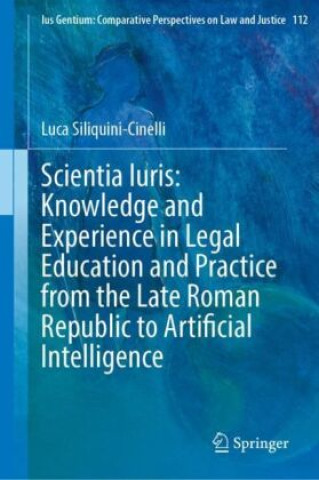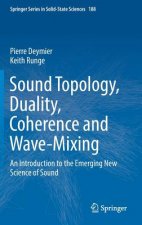
Delivery
Shopping guide





Doesn't suit? No problem! You can return within 30 days
 Gift voucher
any value
Gift voucher
any value
You won't go wrong with a gift voucher. The gift recipient can choose anything from our offer.
Scientia Iuris: Knowledge and Experience in Legal Education and Practice from the Late Roman Republic to Artificial Intelligence
 English
English
 448 b
448 b
30-day return policy
You might also be interested in


Law's regulatory reach has grown significantly over the past few decades. Yet, at the same time, law schools and legal professions in Western and Western-oriented jurisdictions have undergone an acute crisis. How is this possible? In this insightful and wide-ranging book, Luca Siliquini-Cinelli argues that these trends are in fact complementary manifestations of a single phenomenon-namely, that law is and will always be more capable of regulating social interaction without the experiential contribution of legal experts. Siliquini-Cinelli contends that the separation of law's regulatory function from legal experts is structurally linked to the former's nature and operational dynamics as an intellectual artifact to be used for ordering purposes. As a product of the intellect, law is a matter of knowledge, not experience. In fact, Siliquini-Cinelli holds, law's artifactuality voids experience, including that of legal experts, making it redundant. This explains how law can thrive as a regulatory phenomenon while the very places where future legal professionals are formed and those places where it is practised are in crisis. To show this, Siliquini-Cinelli embarks upon a historical, philosophical, and comparative analysis of law's artifactuality, focusing on the teaching, study and practise of law as intellectual endeavours, from the advent of juristic activities in the Late Roman Republic to current legal pedagogies, practices, and reforms in Civil and Common law jurisdictions. In so doing, Siliquini-Cinelli employs the Latin phrase 'scientia iuris' to explain why and how legal education and practice pursue knowledge at the expense of experience, and the serious implications this has for lawyering activities. Moving beyond established narratives, Siliquini-Cinelli argues that 'scientia iuris' ought not be reduced to dogmatic analysis (scientia iuris as doctrina iuris). Rather, 'scientia iuris' denotes the knowledge of the law sought by all those who teach, study, and practise it, and which is actualised through a form of legal thinking and argumentation that moves along reason's metaphysical, constructivist lines (scientia iuris as cognitio iuris). Thus, scientia iuris is not the prerogative of a few legal scholars; rather, it lies at the very core of Western legal education and practice, broadly understood. The relevance of Siliquini-Cinelli's original and interdisciplinary analysis is profound and far-reaching: the crisis that legal education and practice are undergoing is not an isolated, or accidental, event; it is a consequence of the very ways in which law has been taught, studied, and practised since Rome.'This richly researched book on the history of scientia iuris is a work on epistemology which argues that the legal model is highly problematic and will eventually be able to function without the intervention of jurists and lawyers. Such a thesis is based upon a very detailed knowledge both of philosophy and of the legal primary and secondary sources from Roman to modern times. The author is at home with Ancient Greek, Latin, French, German and Italian texts and this means that the research basis for the thesis not only is unusually profound - encompassing both the civil and the common law - but will make a major contribution to historical jurisprudence, to comparative legal history, to comparative law in general and to legal theory. This is legal scholarship of the highest order.'Geoffrey Samuel, Emeritus Professor of Law, Kent Law School'In this exceptionally robust and expertly-researched new book, Luca Siliquini-Cinelli presents a provocative thesis. He proposes that the experience of legal experts is redundant when it comes to the success of law as a regulatory framework. Oscillating between historical, material, philosop
About the book
 English
English
Categories




 How to shop
How to shop




























